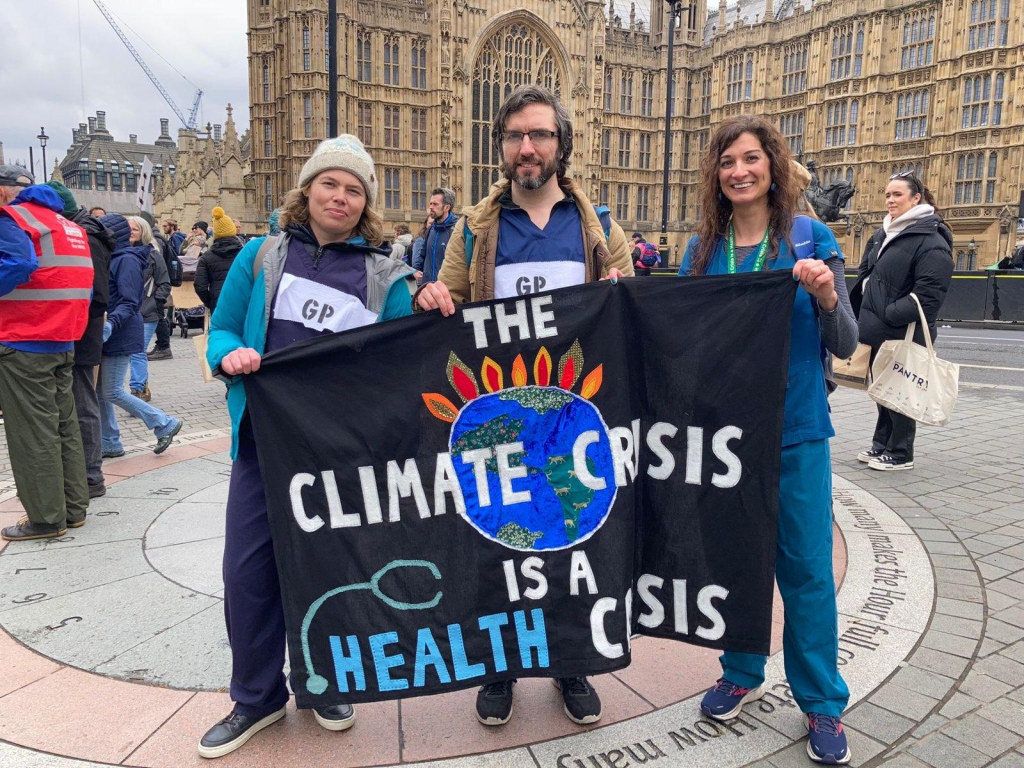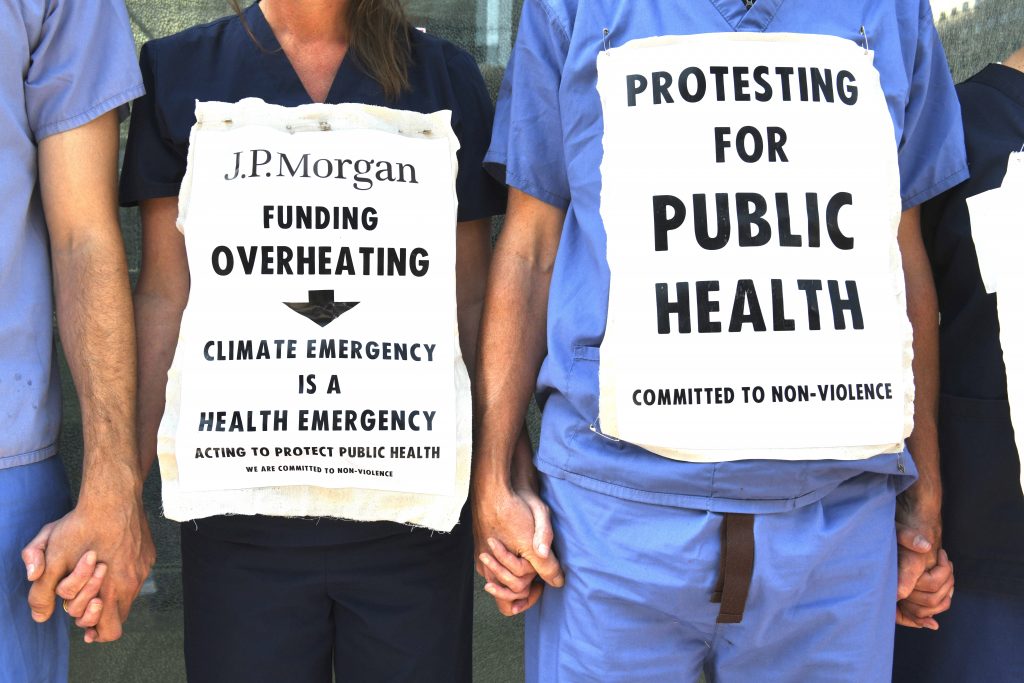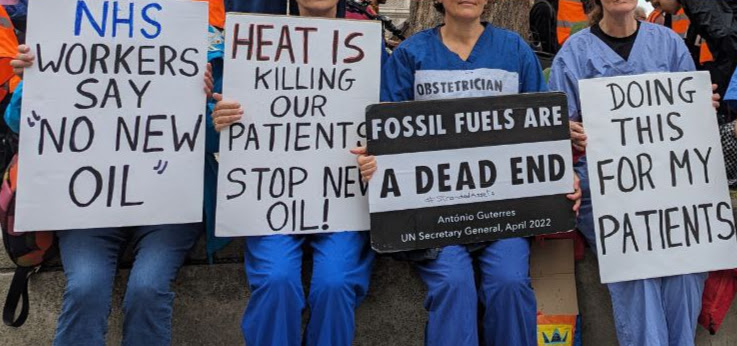Climate Crisis = Health Crisis
The climate and ecological crises together ‘risk catastrophic harm to health, both in the UK and across the world, that will be impossible to reverse’[1]. The World Health Organisation states that between 2030 and 2050, climate change is expected to cause approximately 250 000 additional deaths per year globally, particularly from malnutrition, malaria, diarrhoea and heat stress [2]. The Faculty of Public Health echoes the verdict that ‘Climate change is the greatest public health threat of the 21st century and is a core responsibility for the public health workforce’[3].
While none of us are safe from its impact, the people harmed first and worst by the crisis are people living in low-income and disadvantaged countries and communities. These people have the lowest carbon emissions and contribute least to the crisis. They are also the least able to protect themselves and their families against its effects.

The Intergovernmental Panel on Climate Change (IPCC) has concluded that to prevent millions of climate change-related deaths, the world must limit temperature rise to 1.5°C [4]. Even this is not considered safe, but every small increase in warming beyond this will cause further harm to people’s lives and health. ‘For further information about the Climate and Ecological crisis and how it is increasingly impacting health, you may find this BBC simple guide [link] or these videos [link] helpful.
The good news is that actions to tackle the climate and ecological crises are ‘win-win’ opportunities as they also can improve public health and tackle health inequalities. The Lancet has found that three policy actions relating to active travel, sustainable food and home energy efficiency could save 1.7 million life years by 2050, and 9.4 million life years by 2100 [5]. C40 Cities and Leeds University researchers found that promoting plant-based diets and advocating active transport over private car use could drop the UK’s consumption emissions by between 8.5% and 12.2% [6].


However fossil fuels – coal, oil and gas – are by far the largest contributor to global climate change, accounting for over 75 per cent of global greenhouse gas emissions [link]. Fossil fuel extraction continues despite the fact that we already have reserves that, if burnt, will carry us over 3 degrees of warming. It is essential that new fossil fuel extraction ends now so that we can commit to a rapid transition to a fossil free future. [link] [link]
To understand the different ways that the climate crisis affects health in the UK and globally click here
For articles and publications click here
What can I do as in individual?
HXR focuses its work on protest and non-violent disruption at a societal level. Our actions are aimed at decision makers (e.g. government, political parties, policy makers, health profession regulators and trusts), organisations (such as fossil fuel companies and the banks, insurers and lawyers who finance or facilitate their actions) and the legal system (e.g. the Defend our Juries campaign).
Taking individual action is also important, There are lots of organisations and resources available on the internet to help you with this. To start you off:
Banks such as Barclays, HSBC, Nat West, Santander and Lloyds are huge investors of fossil fuels. One of the most important things you can do is switch to an ethical, greener bank – check out Positive Money, Switchitgreen, MotherTree. Don’t forget to tell your old bank why you are changing. And talk to any organisations you are involved with about switching their bank too.
XR: 10 simple ways to reduce your carbon footprint [link], Take the Jump: six shifts to protect our earth [link], The Climate Coach: making a difference on climate [link]. You can also influence your health organisation (e.g. Greener Practice [link] or your Trust’s sustainability lead/team), link up with your local XR group [link] or join another health profession climate group such as MedAct [link], Health Declares [link] or Eco-medics [link]
We also encourage you to spread awareness of the climate crisis amongst your family, friends, patients and colleagues. Useful ideas for doing this can be found here.
